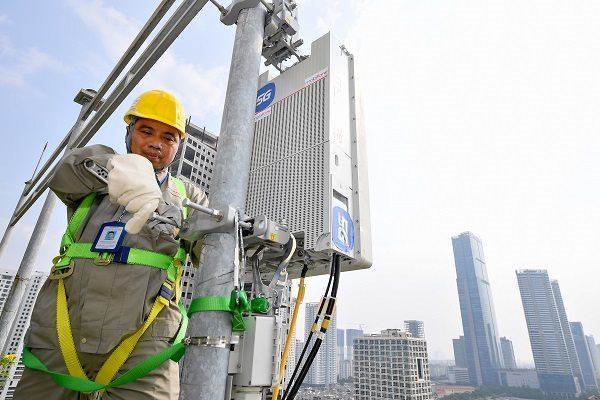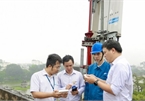Sharing the same telecommunication infrastructure system is a feasible solution as it cuts investment and maintenance costs, and helps protect the environment and urban landscapes.

However, telcos decided to build infrastructure systems of their own.
To date, about 400,000 base transceiver stations (BTS) have been installed throughout the country with each network operator running its own system. The investment rate for every BTS is VND1 billion on average.
The director of one telco said all telcos understood the benefits of sharing infrastructure items, but they believed that owning separate infrastructure systems would help increase their competitiveness.
The telcos which have good infrastructure and utilize modern technology will be able to provide high-quality service at competitive prices.
| Reports showed that the number of businesses registering to suspend business for definite time was stable, about 20 percent, in the first quarters of 2015-2019, but the figure soared by 26 percent in Q1 2020 compared with the same period last year. |
In order to have good infrastructure, telcos need to have powerful financial capability, long-term vision and investment strategy.
If sharing the same infrastructure items or leasing them, a small-scale telco, or a newcomer in the market would have the same infrastructure advantages like a long lasting telco.
As a result, telcos refused to share infrastructure despite the encouragement by the government over the last 10 years.
However, the Covid-19 crisis which has caused big damage to the economy has forced them to rethink their strategies.
Reports showed that the number of businesses registering to suspend business for definite time was stable, about 20 percent, in the first quarters of 2015-2019, but the figure soared by 26 percent in Q1 2020 compared with the same period last year.
Analysts found that the number of these businesses increased sharply in 15 of 17 business fields, including information technology and communication.
Telcos have been asked to expand the capacity of Internet connection bandwidth and improve the quality of services.
The new circumstances have forced telcos to change their view on sharing telecom infrastructure. Tao Duc Thang, deputy CEO of Viettel, said 15 years ago, infrastructure was considered the ‘weapon’ for telcos to compete with each other, because good infrastructure would determine the quality of service.
However, now is the right time to think of sharing infrastructure to ensure economical and effective operation.
Hanoi is pioneering the movement. In 2016, the municipal authorities, VNPT, Viettel, MobiFone and Hanoi Power Company signed an MoU on investment cooperation on telecom and underground power line in 2016-2020, which says sharing the same technical infrastructure is mandatory.
In early May, VNPT and MobiFone, two of the three largest mobile network operators, signed an agreement on sharing infrastructure items of 700 new BTS.
Tu Linh

Vietnam’s second largest telco gets green light for 5G tech tests
Vietnam’s second largest telco is ready in terms of technology, technology and network structure for deploying commercial 5G network.

2019: a year of strong growth for Vietnam telecommunications
Preparation for 5G, MNP (mobile number portability) and elimination of ‘trash’ simcards were the most noteworthy events in 2019.
 Telcos, which ignored earlier advice on sharing infrastructure, have now changed their mind.
Telcos, which ignored earlier advice on sharing infrastructure, have now changed their mind.